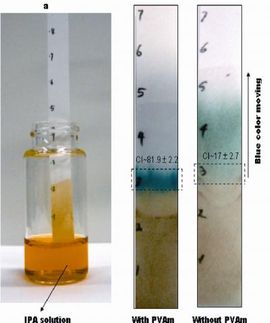New antioxidant compounds have been identified in foods such as olive oil, honey and nuts
Scientists at the University of Granada have identified and characterized for the first time different antioxidant compounds from foods such as olive oil, honey, walnuts and a medicinal herb called Teucrium polium. They have used two new techniques, capillary electrophoresis and high resolution liquid chromatography, that have enabled them to identify and quantify a great part of the phenolic compounds contained in these foods.
Functional foods such as olive oil, honey, walnuts and a medicinal herb called Teucrium polium are able to provide different health benefits, so their study and characterization is of great interest. Among the compounds that give such functional characteristics to these foods are phenolic compounds that have generated great interest due to their antioxidant capacity, which endows them with a chemopreventive effect in humans and causes them to have a great influence on the stability of oxidation present in food. Therefore, according to UGR researchers, the "identification and quantification [of these compounds] is a good means for the characterization of foods that contain them."
This work has been performed by Ana María Gómez Caravaca, and directed by Professors Alberto Fernández Gutiérrez and Antonio Segura Carretero< from the Department of Analytical Chemistry at the UGR .
Scientists stress that phenolic compounds have a high antioxidant power and also influence the organoleptic properties of food. Therefore, studies such as the one carried out at the UGR are of great interest because they can determine the amount of these compounds present in foods, and also what compounds are included in every matrix, being able to even determine which one presents a higher activity and its concrete action.
This research has shown the potential of these techniques for the separation, identification and quantification of the phenolic fraction of vegetable matrices, using appropriate methodologies for this purpose and in the case of olive oil, studying certain technical parameters that affect the phenolic profile.
Other news from the department science
Most read news
More news from our other portals
See the theme worlds for related content
Topic World Chromatography
Chromatography enables us to separate, identify and thus understand complex substances. Whether in the food industry, pharmaceutical research or environmental analysis - chromatography opens up a treasure trove of information about the composition and quality of our samples. Discover the fascinating world of chromatography!

Topic World Chromatography
Chromatography enables us to separate, identify and thus understand complex substances. Whether in the food industry, pharmaceutical research or environmental analysis - chromatography opens up a treasure trove of information about the composition and quality of our samples. Discover the fascinating world of chromatography!




























































